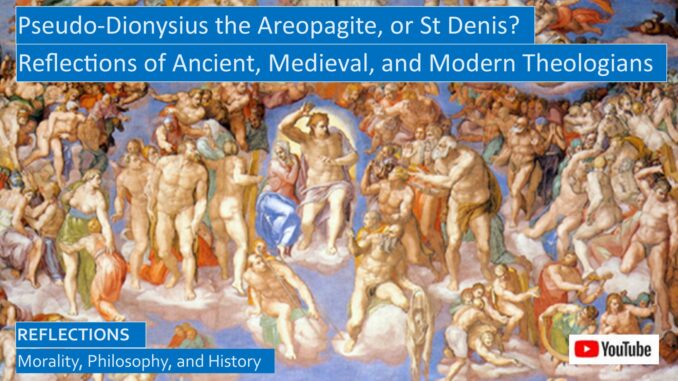
Dionysius, known to St John of the Cross and St Thomas Aquinas as St Denis, and to modern scholars as pseudo-Dionysius the Areopagite, although deprecated by many modern scholars, was one of the most profoundly influential theologians of both the ancient and medieval churches. Dionysius wrote under a pseudonym; scholars have no clue about his identity. This is a partial list of the:
Church Fathers Profoundly Influenced by Dionysus, aka pseudo-Dionysius the Areopagite:
Eastern Christianity
- St Maximus the Confessor
- Andrew of Crete
Western Christianity
- St Thomas Aquinas
- John Scotus Eriugena
- Pope Gregory the Great
- Albert the Great
Mystical Theologians
- Author of The Cloud of Unknowing
- Meister Eckhart
From this list, we know that Dionysius has deeply influenced both Eastern and Western giants of the faith; indeed, references to Dionysius in the works of St Thomas Aquinas are only outnumbered by his references to Aristotle, these references include a commentary of the Divine Names of Dionysius in his Summa Theologica. In contrast, Luther was antagonistic towards the works of Dionysius, we will ponder what spiritual insight we can glean from this opposition.
YouTube video for this blog: https://youtu.be/wlr55ddb-lc
Video script with more book links: https://www.slideshare.net/BruceStrom1/pseudodionysius-the-areopagite-influence-of-neoplatonism-on-mystical-christianity
Video for St John of the Cross and Seven Capital Sins: https://youtu.be/DgL7Y5pIFAU
Video for St John of the Cross, Dark Night of the Soul, and Dionysius and Mystical Theology: https://youtu.be/6VffPIzfT-o
DISCUSSING DIONYSIUS
We were astounded not only by how many of the most influential ancient and medieval theologians were deeply influenced by Dionysius, but also by the number of modern theologians who are similarly eager to write about Dionysius.
There is a mix here, we quote from the Catholic theologians Balthasar, known for his works written after Vatican II, and Copleston, a Jesuit priest who wrote a multi-volume series on philosophy that is included in the curriculum of most Catholic seminaries. We quote from several well-regarded Orthodox theologians, including Andrew Louth, Andrew McGuckin, and Vladimir Lossky, and when he wrote these works referencing Dionysius, Jaroslav Pelikan was one of the foremost Lutheran theologians, though he converted in his retirement years.
MODERN THEOLOGIANS
- Introductions to Pseudo-Dionysius, the Complete Works
- Jaroslav Pelikan, plus the lesser-known Jean Leclercq and Karlfried Froelich.
- Frederick Copleston, influential Jesuit Professor, author of the series, History of Philosophy.
- Influential Orthodox Scholars: Andrew Louth, Andrew McGuckin, and Vladimir Lossky.
- Jaroslav Pelikan, influential scholar, mentions Dionysius in first three volumes of The Christian Tradition, History of Development of Doctrine
- Hans Ur von Balthasar, influential Catholic scholar in his work on St Maximus the Confessor.
There is a mix here, we quote from the Catholic theologians Balthasar, known for his works written after Vatican II, and Copleston, a Jesuit priest who wrote a multi-volume series on philosophy that is included in the curriculum of most Catholic seminaries. We quote from several well-regarded Orthodox theologians, including Andrew Louth, Andrew McGuckin, and Vladimir Lossky, and when he wrote these works Jaroslav Pelikan was one of the foremost Lutheran theologians, though he converted in his retirement years.
As a reminder, my companion blog has the footnotes and book links referencing the sources I used. The book links are also in my YouTube scripts I upload to SlideShare.
Who was pseudo-Dionysus? St John of the Cross and St Thomas Aquinas refers to him as St Denis, and several of his works are introduced as from “Dionysius the Presbyter, to his fellow-presbyter Timothy,” which refers to Dionysius the Areopagite, mentioned in Acts 17:34, which suggested that it had apostolic pedigree. (and his teacher) This work is first mentioned in 533 by Severus, the Patriarch of Alexandria, and other scholars have noted that some of his language has been lifted from the works of the last influential Neoplatonist philosopher, Proclus.[1]
McGuckin states that though the early Byzantine theological debates tolerated the “authorial subterfuge,” that “within a generation or two their ‘apostolic origin’ was eventually believed, and with this dramatic label the works came to have a profound influence for centuries to come.”[2] Copleston notes that Pope Martin I appealed to St Denis as authoritative in the First Lateran Council of 649. Dionysus deeply influenced the theology of St Maximus the Confessor and St Thomas Aquinas.
Who was the author? Copleston states, “the author was a theologian, without doubt an ecclesiastic also; but he could not have been Severus himself, as one or two writers have rashly supposed.” We will likely never learn who the author was; the brilliance of his writing certainly enhanced its influence.
There were many Church Fathers whose theology was profoundly influenced by the works of Dionysius, put Peter Abelard was skeptical of his apostolic credentials, but as he was controversial in his day, his opinion was not widely shared.
Are the teachings of Dionysius orthodox? Copleston offers his opinion, “Personally I consider that the writings are orthodox in regard to the rejection of monism; but on the question of the Blessed Trinity, it is highly questionable at least if they can be reconciled with orthodox Christian dogma.” Monism is the Neo-platonic notion that everything is derived from “The One,” from which everything flows.
Copleston does note that Dionysius does maintain the doctrine of the Incarnation, though he thinks this is underemphasized by Dionysius. Copleston points out that you cannot condemn his teachings on the Incarnation, taken as a whole, “unless you are prepared to reject as unorthodox, for example, the mystical doctrine of St John of the Cross, who is a Doctor of the Church.”[3]
Was Dionysius a monophysite? This term refers to the great Christological controversies decided in the early church ecumenical councils. The First Council of Nicaea had decided that Christ was both human and divine. Debate continued, the orthodox position was that both human nature and divine nature were both united in one person, while monophysites believed that the human nature was absorbed into the divine nature. This is the simplified Wikipedia explanation, we will study this question later when we study the history of the church councils.[4] Andrew Louth states, “Scholars are still divided as to whether his Christology is Monophysite.”[5]
The Patriarch Severus was a monophysite, and the works of Dionysius influenced both monophysite and Nestorian theologians, according to Jaroslav Pelikan. Scholars have noted that Dionysius has carefully crafted the wording of his theology so it would be seen as orthodox. For example, Pelikan quotes Dionysius from his Ecclesiastical Hierarchy, “out of love for humanity, Christ emerged from the hiddenness of His divinity to take on human shape, to be utterly incarnate among us while yet remaining unmixed,” a formulation that grants the “Logos after the union a full and distinct human nature.” Pelikan explores whether Dionysius was guilty of monenergism, the belief that Christ had one energy, a rather technical debate, but Pelikan notes that Dionysius could not have anticipated this theological debate, valuing mysticism over the logical points of theology.[6] Andrew Louth has an excellent summary of these Christological controversies in his book on Dionysius.[7]
PROTESTANTS AND DIONYSIUS
Protestants, Luther in particular, are quicker to discard the teachings of Dionysius. Luther was initially amenable to the theological poetry of Dionysius. In an essay by Froelich, he states that “during his years at Wittenberg, Luther became increasingly negative, ending in total rejection. The turning point is often linked to the Leipzig Disputation of 1519, where John Eck used Dionysius’” work on the Ecclesiastical Hierarchy “as evidence for the apostolic origin of papal primacy.” as evidence for the apostolic origin of papal primacy.”
This was the disputation where Luther debated his beliefs after the uproar caused by his 95 Theses, preceding with his break with the Catholic Church.
Luther was wary of scholasticism and the intricate teachings of St Thomas Aquinas, he thought he relied too heavily on the works of Aristotle and the Neo-Platonism of Dionysius, though his apostolic origins were not universally questioned at the time. In a disputation in 1537, Luther states that Dionysius “taught that humans can converse and deal with the inscrutable, eternal majesty of God in this mortal, corrupt flesh without mediation,” and he warns his listeners to avoid reading books like Mystical Theology. Luther’s “alternative was the theology of the Cross.” Luther also comments, “Dionysius is most pernicious; he Platonizes more than he Christianizes.”[8]
This criticism by Luther reminds us that it is a spiritual trap that if our desire to focus on what we think is the spiritual side of faith, our Love of God, distracts us from our love for our neighbor, and to wish our neighbor well, then it is a false spirituality, and indeed St John of the Cross, a mystical theologian influenced by Dionysius, warns us of this danger.
Although the many references in the New Testament of praying in the Spirit is not the same as apophatic or negative theology, these references exhort us in prayer to ask the Spirit for assistance in our prayer life to reach up and ascend to the divine:
St Paul in Romans exhort us, “Likewise, the Spirit helps us in our weakness; for we do not know how to pray as we ought, but that very Spirit intercedes with sighs too deep for words. And God, who searches the heart, knows what is the mind of the Spirit, because the Spirit intercedes for the saints according to the will of God.”[9]
MODERN SCHOLARSHIP AND PSEUDO-DIONYSIUS THE AREOPAGITE
Scholars in the Renaissance questioned whether the works of Dionysius indeed dated back to the Apostolic Age, and modern scholars have strong evidence that his works were written in the late fifth or early sixth centuries. Thus, modern scholars refer to him as Pseudo-Dionysius the Areopagite,[10] though Andrew Louth titles his book about him as “Denys the Areopagite.” Like Andrew Louth, my preference is to jettison the Pseudo label, as we can still learn much from a work revered by so many ancient and medieval church fathers, my preference is to refer to works by Dionysius.
Did Dionysius expect that his reading audience would see the joke? Personally, I think that Dionysius would have been astounded that he “fooled” so many for so long that he was truly a theologian from the Apostolic era.
Which leads us to another question, how did Renaissance scholars initially detect that Dionysius was written by someone centuries after the Apostolic age? Simple, the Renaissance scholars first examined the internal evidence in the works themselves, using refined techniques of philology.[11] Simply put, these scholars simply read the breadcrumbs Dionysius laid out in the text revealing his background, including the obvious influence of Neoplatonic philosophers like Plotinus and Proclus.
In the century prior to Luther, philologists determined that the Donation of Constantine, which purported to be a fourth century donation where the first Christian Roman Emperor Constantine transferred authority over Rome to the Pope, was actually a thirteenth century forgery, since the language in the document used words and usage from that later century. The Catholic Church had been using this donation to support its claims of papal authority,[12] and by association, the discovery of this forgery likely harmed the credibility of the works of Dionysius.
Dionysius does lay it on thick, his short ten epistles include epistles to Polycarp, a hierarch; Titus, the hierarch; and John the Theologian, apostle and evangelist, an exile on the island of Patmos; which are intended to confirm his apostolic succession. But he also addresses several of these short epistles to monks.[13] Since monasticism arose after the apostolic age, after Emperor Constantine ended the persecution of Christians, could Dionysus be suggesting that his apostolic succession is a literary device?
Andrew Louth explores the symbolism, “Dionysus was the first of St Paul’s converts in Athens, and Athens means philosophy, and more precisely, Plato. Plato had commonly, if not quite always, been respected by Christians.” Early Christians like St Justin Martyr “had greatly revered Plato, if dissenting from some of his doctrines.”
For much of the fifth century the head of the Platonic Academy in Athens was the great pagan philosopher Proclus. Louth suggests that “the pseudonym expressed the author’s belief that the truths Plato grasped belong to Christ and are not abandoned by embracing faith in Christ.”[14]
Writing works in the name of a somewhat contemporary Christian saint was common in the ancient world, often this was seen as a sign of admiration and respect, though adding credibility to the work was also a motivation. But it was unusual to credit your work to saints over four centuries ago. Dionysius also unusually refers to his other works, for example, he says, “In my Theological Representations, I have praised” certain notions, but this and several other referenced works have either been lost; or, as many scholars suspect, they are simply literary devices. What a great literary device that would be: you quickly describe a brilliant idea, which you credit to a much longer work you never actually wrote, or which you intend to write it in a future that never arrives.
INTERESTING QUOTES BY MODERN SCHOLARS
Vladimir Lossky has one of the most interesting quotes on the central theology of Dionysius: “Dionysius distinguishes two possible theological ways. One, that of cataphatic or positive theology, proceeds by affirmations, the other apophatic or negative theology, by negations. Positive theology leads us to some knowledge of God, but in an imperfect way. Negative theology leads us to total ignorance,” which acknowledges we can never truly know God.
Then Lossky compares these two ways of understanding God. “All knowledge has as its object that which is. Now God is beyond all that exists. In order to approach Him, it is necessary to deny all that is inferior to Him, that is to say, all that which is.”
This is where the title of the famous theological work, The Cloud of Unknowing, comes from. “If in seeing God one can know what one sees, then one has not seen God in Himself by something intelligible, something which is inferior to Him. It is by unknowing that one may know Him who is above every possible object of knowledge.”[15]
Although the idea of deification can be supported by many verses in the New Testament, eastern Christian theologians like St Maximus the Confessor formulated the analogy that Christ condescends to descend to take on flesh in his Incarnation to save our souls, so Christ adopts us as sons of His Father so we may ascend to salvation in our deification. St Maximus the Confessor was influenced in his view of deification of the faithful by the writings of Dionysius. Pelikan says this, “The principle of deification was the beatitude of God Himself, that by which He was God; his goodness conferred the gift of salvation and deification on all rational and intelligent beings.”[16]
Pelikan references the Ecclesiastic Hierarchy by Dionysius, where Dionysius teaches that the incorporeal heavenly “hierarchy belongs to the domain of the conceptual, something out of this world. But we see our human hierarchy, as our nature permits, multiplied in a multitude of perceptible symbols lifting us upward hierarchically until we are brought as far as we can be into the unity of divination.”[17]
John Anthony McGuckin has an interesting discussion of how profoundly Dionysius “and the religious metaphysics of the Neo-Platonists affected the early Byzantine Christians. First,” in a time when the works of Origen were severely criticized, he promoted “Origen’s ancient principle that the believer must go opou Logos agei,” “which means that where reason leads the mind, so too is God the Logos beckoning,” which is very close to our Channel’s philosophy.
“Second, Christians found in the Neo-Platonists a dialogue partner, not a series of texts to be plagiarized,” useful when missionaries seek to “translate the Semitic gospel to a Hellenized world.”
“Third, this dynamism” views the metaphysics of Dionysius as a “descent from the First Principle: the Sublime Ineffable.” Is McGuckin here referring to Origen’s controversial work, On First Principals, which guaranteed the Church would not declare him a saint? McGuckin is referring to how Christianity appropriates Neo-Platonic concepts: “All being holds its coherence from the One.” “The marks of the Logos are within all things.”
“Fourth, Dionysius was concerned with how to speak about God: apophatically, using negation of words and ideas, or kataphatically, using ideas taken from the material world.” The apophatic path is both more challenging and more rewarding.
“Last, the stress on order and dependent relationships in the ascent to God, which Dionysius emphasizes so much in his view of angels and clerical ranks in his two treatises on the Hierarchies, provided immense intellectual stimulation to the Christian Western world in the Dark Ages,” and which inspired the mystics with the concept of the deification of the believer.
Medieval Catholics saw in these works on the Hierarchies divine affirmation for respect for the Hierarchy of the Catholic Church, but even if you are Protestant, you can nevertheless interpret Dionysius as teaching the message that you should respect the hierarchy of the church you attend, whether your church has a national hierarchy, or whether your church is an individual, congregational church.
The work of Dionysius that is by far the shortest and is the most succinct statement of his apophatic or negative theology is The Mystical Theology. Next we will examine his Divine Names, which as attracted the most commentary from Copleston, St Thomas Aquinas, and many other theologians.
We will close with a quote from Balthasar from his book, The Cosmic Liturgy, The Universe according to St Maximus the Confessor. “St Maximus entered the history of theology not only as the victor in the dispute over the two wills of Christ, His divine and mortal will, but also as the man who assured a lasting home in the Church for the writings of Dionysius, thanks to his orthodox interpretation of them. Whether Dionysius in fact needed such justification, whether he really was the half-Neo-Platonic mystic that one likes to make him today, and was not rather one of the most powerful Christian thinkers of all time, need not be decided here. It is certain that he aroused a divided response very early: alongside enthusiasm, skepticism, and cool diffidence.” What is true is that “St Maximus grasped the value, the originality, and the fruitfulness of the works of Dionysius and that through his spirited championing of their genuineness, as well as his work of interpretation, he became one of the heralds of the triumphal march of Dionysius through the Latin Middle Ages.”[18]
[1] Frederick Copleston, The History of Philosophy, Volume II, Medieval Philosophy (New York: Image Book, Doubleday, 1993, 1950), p. 91, and https://en.wikipedia.org/wiki/Pseudo-Dionysius_the_Areopagite, we will only verify basic information from Wikipedia, as the other sources are quite complete.
[2] John Anthony McGuckin, The Path of Christianity, the First Thousand Years (Downers Grove, Illinois: IVP Academic, Intervarsity Press, 2017), p. 577.
[3] Frederick Copleston, The History of Philosophy, Volume II, Medieval Philosophy (New York: Image Book, Doubleday, 1993, 1950), pp. 91-93, and
[4] https://en.wikipedia.org/wiki/Monophysitism
[5] Andrew Louth, Denys the Areopagite (New York: Continuum, 2001, 1989), p. 14.
[6] Jaroslav Pelikan, Classics of Western Spirituality, Pseudo-Dionysius, the Complete Works, translator, Colm Luibheid, Introductions (New York: Paulist Press, 1987, originally around 500), pp. 15-21.
[7] Andrew Louth, Denys the Areopagite, pp. 2-7.
[8] Froelich, Pseudo-Dionysius, the Complete Works, Introductions, pp. 41-44.
[9] https://www.biblegateway.com/passage/?search=romans+8%3A26-27&version=NRSVCE
[10] Andrew Louth, Denys the Areopagite, p. 2.
[11] https://en.wikipedia.org/wiki/Philology
[12] https://en.wikipedia.org/wiki/Donation_of_Constantine
[13] Pseudo-Dionysius, the Complete Works, Epistles, pp. 263-289.
[14] Andrew Louth, Denys the Areopagite, pp. 10-11.
[15] Vladimir Lossky, The Mystical Theology of the Eastern Church (New York, St Vladimir’s Seminary Press, 1976, 1944), p. 25.
[16] Jaroslav Pelikan, The Christian Tradition, History of Development of Doctrine, Volume 1, The Emergence of the Catholic Tradition, 100-600 AD (Chicago: University of Chicago Press, 1971), p. 345.
[17] Dionysius, the Complete Works, The Ecclesiastical Hierarchy, 373B, p. 197
[18] Hans Urs von Balthasar, Cosmic Liturgy, The Universe According to St Maximus the Confessor (San Francisco: Communio Book, Ignatius Press, 2003, 1946), p. 360.

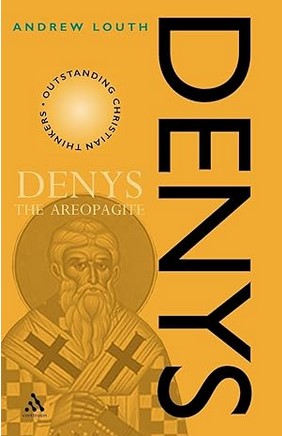

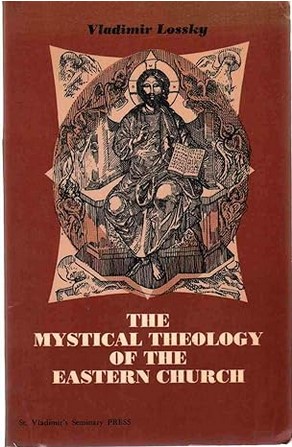
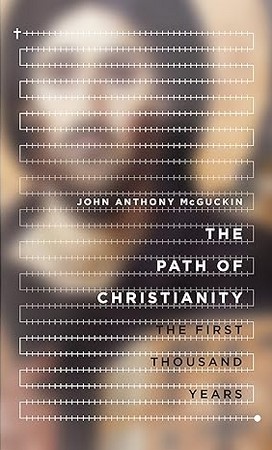
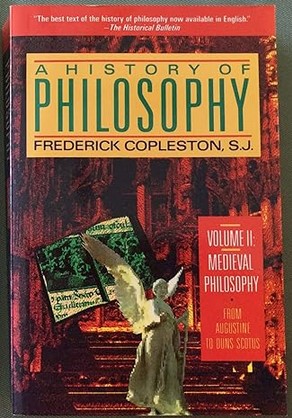
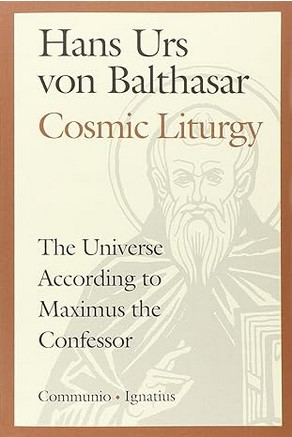
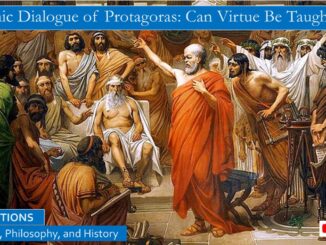
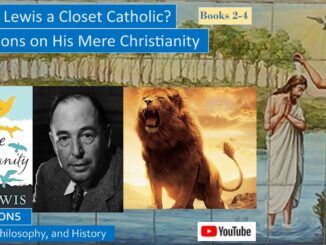
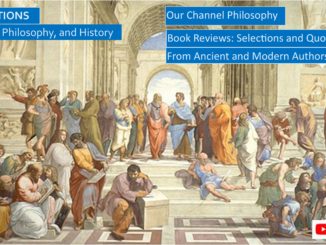
Be the first to comment